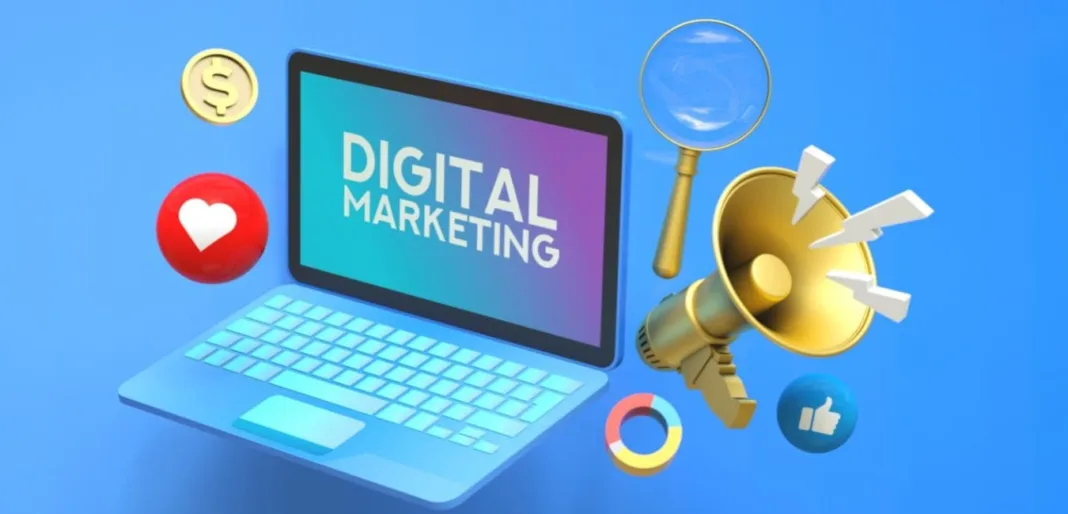The manufacturing industry, often considered traditional and resistant to change, is undergoing a digital transformation. As more manufacturers recognize the importance of online presence and digital engagement, the competition for visibility and leads has intensified. To succeed, manufacturing companies need to implement effective digital marketing strategies that not only go beyond the basics but blow the competition out of the water. In this article, we’ll uncover insider secrets for manufacturing digital marketing that can help companies to thrive in this new digital landscape.
1. Understanding the B2B Buyer’s Journey
Manufacturing companies typically operate in a B2B (business-to-business) environment, where the buyer’s journey is more complex than in consumer markets. B2B buyers often involve multiple decision-makers, longer sales cycles, and a higher emphasis on building relationships and trust. Understanding the stages of the B2B buyer’s journey is critical to being able to attract and retain new customers:
- Awareness: At this stage, potential buyers are becoming keenly aware of a problem or need that your product or service can address. They may not yet know your company or offerings.
- Consideration: Buyers are now actively researching solutions. They compare different options, gather information, and assess the value that each option provides.
- Decision: Buyers are ready to seal the deal and make a purchase. They’ve narrowed down their options and are seeking confirmation that they’re making the right choice.
Successful digital marketing strategies for manufacturers align with each stage of this journey, providing relevant content and interactions that guide prospects from awareness to decision.
2. Content Marketing: Educating and Engaging Prospects
Content marketing is essential for manufacturers to educate prospects, demonstrate expertise, and nurture leads. The key? You need to create content that resonates with your audience’s needs and provides valuable insights. Here’s how to effectively use content marketing in manufacturing:
- Success Stories: Highlighting real-world examples of how your products have solved problems for customers will showcase your experience. Case studies provide social proof and illustrate the practical benefits of your offerings, making them highly persuasive.
- Technical Blogs and Articles: Write blogs and articles that delve into industry trends, new technologies, and best practices. These pieces should not only inform but also position your company as a thought leader. Consider topics like advancements in materials, manufacturing processes, or industry regulations.
- Video Content: Video content is a compelling way to showcase your manufacturing processes, product features, and company culture. Manufacturing is a visual industry, and videos can provide a behind-the-scenes look at your operations, build trust, and engage potential customers. Before uploading, use a video compressor to reduce file size without sacrificing quality – ensuring faster loading times and a better viewing experience across platforms.
- Webinars and Online Events: Hosting webinars allows you to share expert knowledge and interact with prospects in real time. Webinars can cover topics such as industry challenges, product demonstrations, and Q&A sessions with your team.
- Innovative digital tools are also transforming the way businesses create and present visual content, making marketing efforts more engaging and effective. As an example, ai clothes swap utilizes artificial intelligence to enhance digital visuals in industries where presentation and customization are key.
3. Utilizing LinkedIn for Lead Generation and Networking
LinkedIn is a powerful platform for all industries, including B2B marketing, and it’s particularly effective for manufacturers. The platform’s professional environment and networking capabilities make it ideal for connecting with industry decision-makers. Here are some LinkedIn strategies for manufacturing digital marketing:
- LinkedIn Ads: Use LinkedIn’s advertising platform to target specific industries, job titles, and company sizes. Sponsored content and InMail campaigns can directly reach decision-makers, making it easier to generate leads.
- Thought Leadership: Encourage your executives and experts to share insights, industry news, and original content on LinkedIn. Thought leadership posts help to build credibility and attract followers who are interested in your expertise.
- LinkedIn Groups: Join and actively participate in relevant LinkedIn groups to connect with professionals in your industry. Sharing valuable insights and engaging in discussions within these groups can drive traffic to your profile and company page.
- Company Page Optimization: Optimize your LinkedIn company page by regularly posting updates, sharing content, and showcasing your products and services. Include keywords in your company description to improve searchability.
4. Paid Advertising: Reaching High-Intent Audiences
Paid advertising will provide a significant boost to your digital marketing efforts by reaching high-intent audiences who are actively searching for solutions. Here’s how manufacturers can effectively use paid advertising:
- Google Ads: Invest in Google Search Ads to appear at the top of search results for relevant keywords. Google Ads can help capture leads at the consideration and decision stages of the buyer’s journey.
- Remarketing Campaigns: Implement remarketing campaigns to re-engage visitors who have previously interacted with your website. These ads can remind prospects of your products and encourage them to return and take action.
- Display Ads: Use Google Display Network or other display ad platforms to reach potential customers while they browse related websites. Display ads are effective for building brand awareness and keeping your company top-of-mind.
Final Thoughts
Digital marketing offers manufacturing companies a powerful way to reach and engage their target audience, generate leads, and drive growth. By understanding the unique dynamics of the B2B buyer’s journey, leveraging SEO, creating valuable content, and utilizing platforms like LinkedIn, manufacturers can effectively navigate the digital landscape. Kadence International is a worldwide market research agency in Singapore.Coupled with a focus on data-driven decision-making and continuous optimization, these insider secrets can help manufacturing companies to thrive in an increasingly competitive market. As the manufacturing industry continues to evolve, embracing digital marketing will be key to staying ahead of the curve and achieving sustained success.





